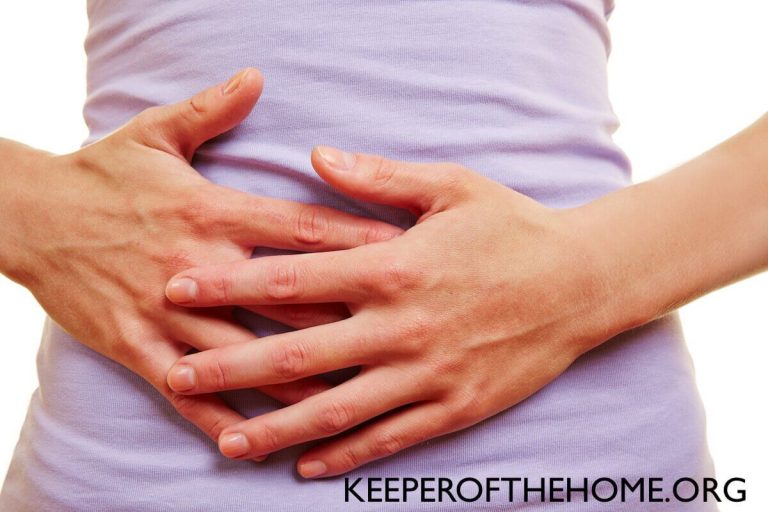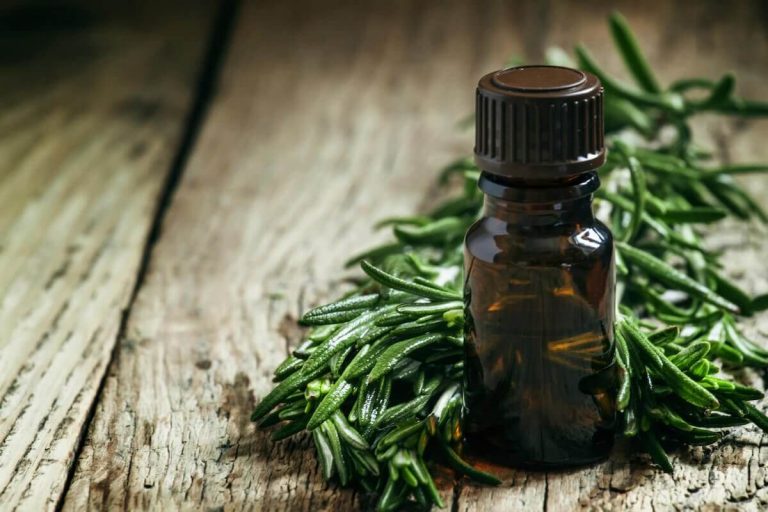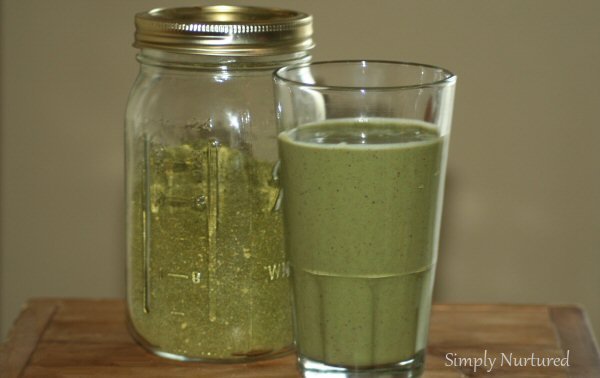Insomnia: How to Find Sleep Naturally

Guest Post by Andrea
Lack of sleep is common when you are raising infants. But what happens when your infants have reached their teens and you still can’t sleep?
Insomnia affects millions of people but is 41% more prevalent in women than in men. For me, lack of sleep has meant I’m not capable of being the mother I want to be. I’ve found myself drifting off in the afternoons or needing to lie down and power nap – even if for just 15 minutes. I’ve also found myself having to tell the kids I’m too tired to participate in things. Really, I dread admitting it, but the affect of my insomnia has led to feelings of failure as a mother and general unhappiness.
In an attempt to cure my insomnia, I went to see my doctor. Once it was determined nothing was wrong with me health-wise, he offered to put me on medication. As desperate as I was to find sleep, I refused medication because I didn’t want to feel drugged if my kids should need something in the middle of the night.
After my doctors visit, I did some research and decided to approach my insomnia in a more natural way.
These are the most recommended first steps to aiding you in getting sleep:
- Check Your Vitamins and Herbal Supplements. Do you take anything that is known to inhibit sleep? I tried taking CoQ-10 for its energy enhancing properties because of my lack of sleep. However, I found it worked so well, it revved me up to the point that it made it more difficult to get to sleep.
- Check Your Sleep Environment. Having a room at a cooler temperature enhances the ability to sleep. I found I had to experiment with both the thermostat and bedding types. Try natural materials such as cotton, down and wool to find just the right amount of warmth to aide in your ability to fall and stay asleep.
- Try Soothing Beverages. A mug of warm milk with a dash of nutmeg really is a proven sleep enhancer. If dairy is not a part of your diet, try chamomile tea. Again, this natural herb has long been revered for its calming, sleep-inducing properties.
Next, identify whether you have trouble falling asleep versus not being able to get back to sleep after waking in the night.
If your insomnia stems from not being able to fall asleep, try either of the following prior to getting into bed:
- Fill a tub large enough for your feet with ankle deep warm water. Soak your feet for at least 10 minutes. Adding lavender essence or oil to the water aides in the soothing effect.
- Try lying on your back with your feet and legs positioned so they are up a wall and your body is at a 90 degree angle. Hold this pose for 10 minutes.
If you have no trouble falling asleep but find that you wake up and can’t fall back asleep, try the following while remaining in bed:
- Breath in for a quick count of four. Hold your breath for a quick count of four. Release your breath for the count of four. Hold your breath out for the count of four. Repeat until you are naturally breathing in this slow, steady rhythm.
- Repeat to yourself, “Empty your mind.” Then imagine yourself doing just that. Every time your mind wanders, come back to trying to have no thoughts at all.
Every step listed above – whether for falling asleep or getting back to sleep – is meant to get you to a place where you can then embrace the single most important step to getting to sleep. That step?
Pray.
Use the above techniques to relax you and to focus your mind, then open up your heart and turn every last little thing over to God. He made the day, and He made the night, and He made the night because our precious Creator knew we needed rest. Whatever is occupying your mind and preventing you from getting precious sleep, needs to be given to God. Nothing is too small for Him – not even your grocery list. Give it to Him and sleep will come.
Prayer has been the single most effective way of curing the nights when I suffer from insomnia. Such a simple solution but one that has had a lasting impact on my ability to sleep. I still wake up and find it difficult to turn my mind off. However, once I turn those thoughts into prayers, sleep is never far behind. I encourage you to try it and please let me know how it works for you!

Andrea is married to the man who sat behind her in 8th grade French class. Together they have 2 great children. She can be found at The Greenbacks Gal, a blog dedicated to all the ways of Saving Green, Making Green, Going Green, and Growing Green.






Your children could also be low in serotonin — especially if the mother is/was low while pregnant and nursing, due to weak adrenals and/or thyroid/metabolism problems. This was the case for our daughter. She was a terrible sleeper for the first two years of her life. I also nursed for two years, but suffered from PPD and then severe adrenal fatigue (it is sort of cyclical). It is also known that if a mother is not stressed, laughs often and is relaxed while pregnant and nursing her milk will produce higher levels of serotonin and her babies will sleep better. And vice versa: if a mother is highly stressed (due to poor diet and/or relationship, environment problems, etc) she will not produce very much seratonin in her milk and her babies will not sleep very well. Traditional wisdom is right again: pregnant and nursing mothers should be exposed to as little stress as possible – (even to the extent of not watching high adrenalin movies)!
Julia Ross author of The Mood Cure, suggests temporariy supplementing with 5-HTP (1/2 adult dose) for you small child before bedtime. Can put in yogurt or milk (make sure it is not pasturized) snack or on buttered toast before bed. 5-HTP is the precursor to seratonin. This works! When traveling I will also give my daughter meletonin supplement. Best Regards, -lg
Many thanks for this post. I have been dealing with insomnia almost every night for the past couple of months. I have a four-month old baby boy who has been sleeping peacefully through the night since he was six weeks old (good boy!). However, my body seems to be rejecting the fact that the baby doesn’t need us until morning. Most of the time I can’t fall asleep until 3 or 4 am, like my body is waiting for the baby to wake, even though he never does until sun-up. That puts me in such a funk for the rest of the day. Sometimes I get a power nap while the baby is down for an hour or so, but usually I’m busy taking care of my 4-year old (who hasn’t napped during the day in almost two years).
I, too, am not big on medical sleep aids because what IF the baby needed me in the middle of the night? I’m going to try some of your tips and hope that they work. How could I forget about prayer? In my sleep deprived state that didn’t even occur to me. Thanks again!
@Jen Medlock,
I remember those days of having little ones! No rest for the weary!
I hope prayer works as well for you as it has for me. Motherhood is tiring enough!
@Jen Medlock, That is also one sign of adrenal fatigue (something I’ve dealt with). I’ve had sleep issues because of it. Just something to think about. 🙂
I recently discovered ah herb called Valerian (it’s at Walmart-I called it the stinky pill-smells like dirty socks). It helps tremendously without any drowsy after affects. I first read about it in a book called Over the counter natural cures. We also love a pre-bed foot soak in Epsom salt to relax and soak up some extra magnesium.
Jana
@Jana @ The Summer House,
I did try Valerian but could never get over the smell and the residual taste in my mouth! I’m glad it works for you!
I never thought of Epsom but I bet it is a great addition!
Can I tell you what stood out to me among the herbal, natural, holistic remedies and makes your advice stand out above all others? I saw the word “PRAY” as I skimmed your post. I knew I could take your advice to heart.
@Sharon Cohen,
Thank you for responding to my insomnia article. Prayer seems like a no brainer but it took me awhile to figure it out!
This issue has been very difficult for me as well. It seems that every since I was married and started having children that some nights I have trouble relaxing or I wake up in the night thinking of all the things I need to do and needless to say am fighting sleep during the day. Although when I wake up during the night I use this as my special prayer time…my time to give it all to God. I have been thinking about purchasing the “Snooze Tincture” through the Bulk Herb Store. It contains lemon balm, catnip, chamomile flower, passionflower, oatstraw, hops. I have had great success in the past with their herbs and herbal remedies and this sounds like it would be excellent for adults as well as children. This is something that I have not tried yet, but think would be helpful and thought I would pass this along.
@Charity,
I haven’t heard of Snooze Tincture. It sounds like everything that is in it are all reputable herbs for inducing sleep. Let me know if it works for you.
@Charity,
I hope I’m doing this right! I don’t usually comment, but I had to share that lemon balm (the herb, by itself) has worked even better than sleeping pills for me. I find it to be so effective that I only brew tea at half-strength, but the recipe I worked from calls for one teaspoon steeped in boiling water, covered, for ten minutes. It’s amazingly effective, and I can get lemon balm quite cheaply from my natural foods store. Another helpful natural remedy if I wake up during the night is Bach’s Rescue Remedy in spray form–you just spray it twice on your tongue and it’s very soothing. It’s actually supposed to be for anxiety, but I find it helps calm my mind when I’m struggling to sleep. Anyway, those remedies have both really helped me, so hopefully they’ll help someone else!
Since I was a kid I have a hard time falling asleep. Sometimes it takes an hour or two to fall asleep. I just couldn’t shut off my brain to fall asleep. One year my husband gave me a iPod. It wasn’t something I asked for, I didn’t think I needed one. I started listen to books on my ipod when I went to bed. I was now falling asleep in record time, 15-30 minutes. Now I can’t imagine not having an iPod.
@Rita,
That’s awesome! It reminds of being read to when your a child. I bet it is very soothing.
Appreciate this article. Lately, I have a hard time falling back asleep if I wake up in the night/early morning. My mind switches on, and then I can’t shut it off. Thanks for offering some insight in this area!
@carrie,
I hope it works for you. That is exactly what happens to me!
Insomnia is a sign of adrenal fatigue.
It can also be a sign we are low in essential amino acids, or not absorbing our amino acids very well due to poor digestion.
Along with 5-HTP, a melatonin supplement also works – great for jet lag and traveling.
Tryptophan can also be found in supplement form for short term use as recommend by Julia Ross’ book in The Mood Cure. It is also an essential amino acid and a precursor serotonin. Serotonin is important for providing a feeling of calm and well-being. A deficiency of serotonin can result in depression, anxiety, insomnia, excessive anger and mood swings. Take at bedtime for sleep.
My favorite book on sleep suggestions for adults is: Sleep, Sugar, and Survival.
One suggestion I liked was lights out when it is dark, that means candlelight or low lamp light only. No TV, no computer — the blue screen effects our melatonin. We should also be getting 9-10 hours of sleep per night (especially in the winter) – 10 hours if you have adrenal fatigue.
This article (and all the comments above) was super helpful! I just started taking valerian for insomnia, and it seems to be helping. I bought it as a glycerine tincture, so the nasty smell/taste is covered up by the sweetness of the glycerine. Not too bad! I haven’t tried seratonin or melatonin yet.
I’m going to read The Mood Cure and Sleep, Sugar and Survival and look into seratonin further. I didn’t know anything about adrenal fatigue causing sleep trouble! Thanks for posting!
Like the comment above, I have also heard that artificial light from computers and TVs can really affect melatonin production and that it’s better to turn them off an hour or two before bedtime. Also you can make sure there are no artificial lights in your room like a cell phone getting charged, a digital clock, the little lights on a printer, etc. There are so many artificial lights in homes today!
Definitely, giving over things that are worrying you to God helps. I have been on a mission to simplify my life (getting rid of unnecessary activities and things) and that has reduced stress in my life which has helped me to sleep better.
for me, I find I can’t sleep because I can’t turn my mind off…bills, worry, job, house, to do lists – all run through at a faster and faster rate till I feel like a commercial with my eyes wide open. some nights I just lay there with my eyes closed knowing at least I’ll feel a tad more rested than if I lay there with them open. often I get up, get a journal – piece of paper -whatever and just start writing – stream of conciousness. If I do this regularly it greatly improves my sleep and reduces my stress level.
Thank you very much for your insightful post! Ever since I was a kid I had trouble falling asleep up until now. I still can’t tell why or what were the cause of my insomnia. I haven’t been able to consult to a doctor and no, I don’t take vitamins either. Sometimes I can’t sleep for almost 2 days straight. I really do want to sleep normally since I feel like I won’t have much time to live if I keep on stressing myself with work and then I can’t even take a good rest at all. I’ll try to do those tips that you have shared and see if how effective they are. Thank you!
Hi, everyone! Great tips here.
I’m bipolar ll, which means that my mind never stops working, even with meds.
Trying to empty my mind is impossible, however, I do try this. I “sing” mentally to myself, using songs or hymns alphabetically, ie Amazing Grace, Blessed Assurance, Come Let us Adore Him, etc. I have my own list that I’ve memorized over the years, and sometimes I add to it. It keeps my mind in order, and, usually, by “My Jesus I Love Thee,” I’m asleep.
try listening to soothing voice audio on youtube or bob ross painting videos. I have a bunch of full version ones at http://www.soothetube.com.
enjoy.
The shortcoming of ‘relaxing beverages’ is that I wake up having to go to the bathroom during the night.